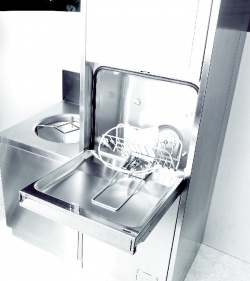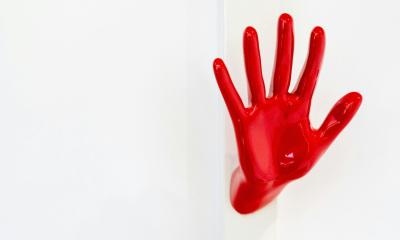Meiko Innovation:Top Cut B
Avoiding and reducing waste in the clinical environment not only has highly scalable effects in economic terms, but also marks a key milestone on the path towards a ‘green hospital’. The latest innovation from the company MEIKO makes a major contribution towards reducing waste while simultaneously making nursing staff’s work both safer and easier.


The universal care utensil holder in the TOPLINE bedpan washer can easily be substituted with the TopCut B in one simple operation. The TopCut B is a device that allows you to position a full urine or secretion bag of any size and from any manufacturer in the machine, automatically aligning it so that an integrated blade can open up the bag and empty it during operation. Thanks to a spreader system specifically designed for this purpose, you can rest assured that the bag will be emptied completely.
“When we started developing the TopCut B, we placed a huge emphasis on ensuring that the machine would be user-friendly and easy to operate, because we have learnt from experience that one of the most crucial factors in ensuring adherence to hygiene requirements is the willingness of the nursing staff to take a disciplined approach to carrying out their work," explains MEIKO development engineer Marc Frey. The care utensil and bag holders in the TopLine range can therefore be switched with just one hand. The major novelty that makes nursing staff's work safer and easier while helping to prevent waste is the fact that bags containing urine and thin secretions and bags from the operating theatre environment no longer need to be manually opened up and emptied over a slop sink: “Emptying bags by hand makes it almost inevitable that contamination from the bags' contents will spread to nursing staff and, above all, to the area of the sluice room used for this purpose,” Marc Frey notes.
The TopCut B is also a genuinely interesting alternative for hospitals that currently dispose of their urine and secretion bags without opening them through domestic waste channels, according to Marc Frey. This is especially true of dialysis stations and urology departments, but also applies to geriatric wards where large numbers of patients are catheterized and where full urine bags unnecessarily increase the volume and weight of clinical waste, raising the
cost of waste disposal still further.
12.08.2010





